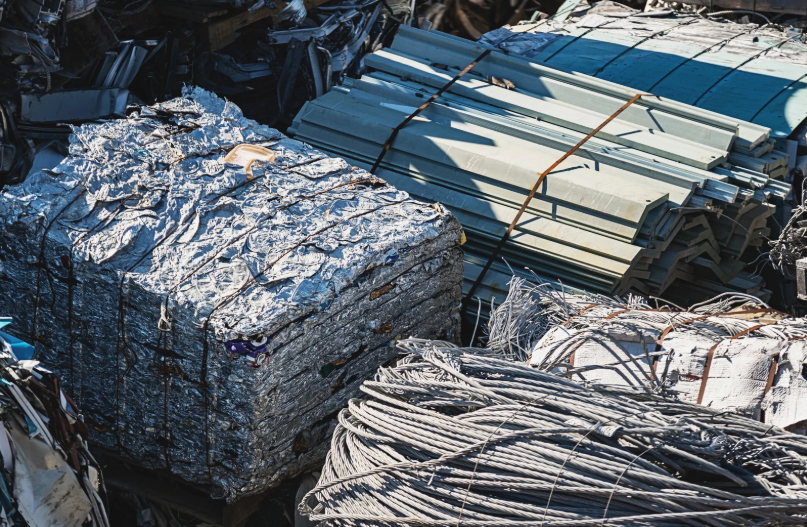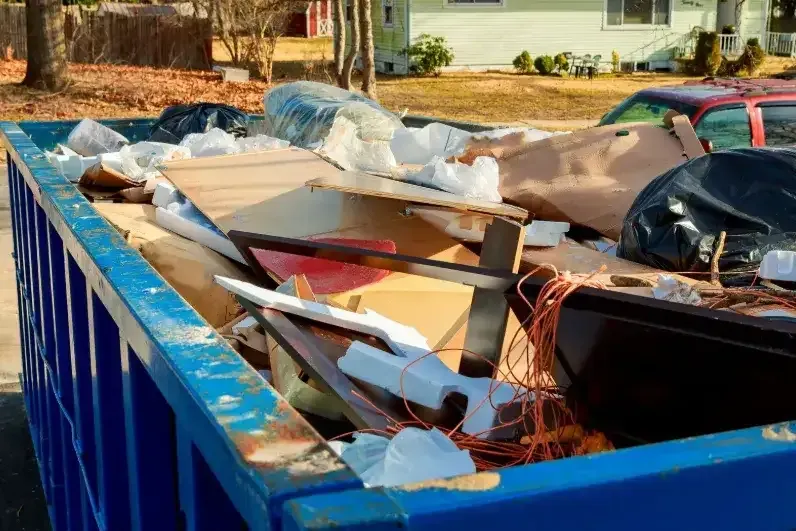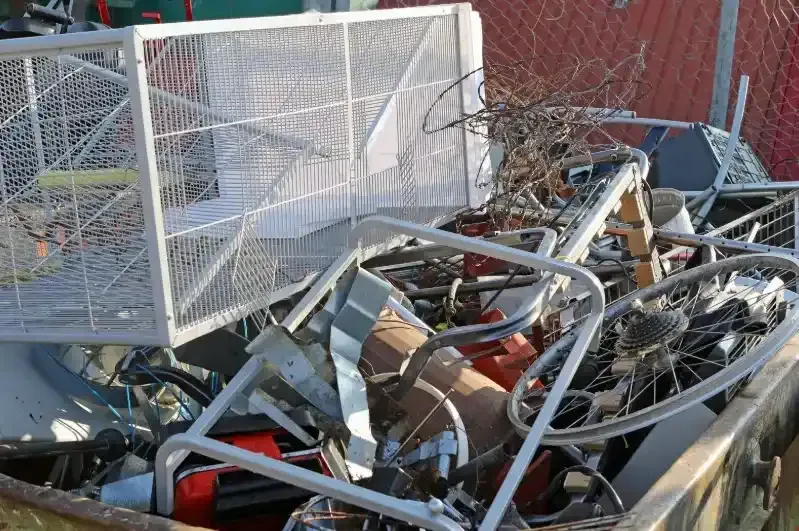How Scrap Metal Removal Can Boost Your Eco-Friendly Efforts
Scrap metal removal is far more than just clearing out clutter—it's a conscious act of environmental responsibility. In a time when sustainability isn’t just a buzzword but a necessity, recognizing the true impact of scrap metal recycling can dramatically shift how we perceive waste. Metals like copper, aluminum, steel, and iron are not only recyclable but infinitely reusable, meaning every piece salvaged is one less that needs to be mined or manufactured from scratch.
This reduces energy consumption, decreases pollution, and limits the extraction of raw resources, which often comes at the cost of damaging natural ecosystems. When individuals and businesses commit to removing and recycling their scrap metal properly, they’re not only cleaning up their spaces—they’re contributing to a broader global effort to reduce carbon footprints and conserve resources. It’s a small action that, when multiplied across communities, creates a ripple of real, measurable environmental change.
The Environmental Imperative of Scrap Metal Recycling
Recycling scrap metal plays a pivotal role in reducing the environmental damage caused by mining virgin ores, a process that often leads to significant ecological harm. Mining operations require massive energy consumption and frequently cause deforestation, soil erosion, and water contamination. These environmental disruptions not only affect biodiversity but also contribute to the degradation of natural habitats.
Moreover, the reduction in mining helps preserve natural landscapes, which are critical to maintaining ecological balance. The process of recycling scrap metal—whether it’s aluminum, copper, or steel—requires less energy than extracting raw materials. For instance, recycling aluminum uses up to 95% less energy compared to refining bauxite ore. Similarly, recycling steel saves around 60% of the energy needed to produce new steel from iron ore.

Economic and Community Benefits
In addition to the environmental benefits, scrap metal recycling offers significant economic advantages that support local communities. Recycling metals generates numerous job opportunities in collection, sorting, processing, and resale sectors. These jobs help stimulate local economies by creating demand for skilled workers, fostering small businesses, and strengthening recycling industries. Communities benefit from cleaner, more sustainable environments, as metal recycling reduces the amount of waste that ends up in landfills.
The recycling process can also lead to cost savings for businesses, as recycled materials are often less expensive than raw materials. Beyond these economic incentives, scrap metal recycling supports the circular economy, which emphasizes sustainability by reusing resources rather than creating new waste. This model promotes the efficient use of materials, which reduces the need for extraction and manufacturing processes. In turn, this system encourages innovation in product design, waste management, and resource efficiency, driving the development of new, eco-friendly technologies and processes.
Challenges and Considerations
Despite the clear benefits of scrap metal recycling, there are several challenges that can hinder the effectiveness of the process. One of the main obstacles is contamination of recyclable materials. If metals are mixed with other substances such as plastics, dirt, or hazardous chemicals, they can become more difficult and costly to recycle. This makes proper sorting, handling, and cleaning essential to ensure that metal waste is efficiently processed. Public education and awareness campaigns are critical in encouraging individuals and businesses to separate recyclable metals from non-recyclable materials, ultimately increasing recycling rates.
Another challenge is the variation in recycling infrastructure across different regions. While some areas have well-established recycling programs and facilities, others may lack the necessary resources, leading to inefficiencies in the recycling process. To address this, investments in local recycling infrastructure and technological advancements are essential to expand recycling capabilities. These efforts will ensure that scrap metal is recycled more effectively and contribute to broader sustainability goals, maximizing the environmental and economic benefits of recycling.
Scrap Metal Removal: The Unseen Hero of Sustainable Practices
When we think of environmental sustainability, it's often easy to focus on the most visible actions—things like reducing plastic waste, conserving water, or planting trees. However, a less obvious yet incredibly impactful action is the removal and recycling of scrap metal. You might not immediately consider metal as a significant environmental factor, but scrap metal is one of the most recyclable materials available. With its ability to be reused infinitely without losing quality, scrap metal removal plays a crucial role in reducing environmental harm while supporting a circular economy. In fact, it’s a process that benefits not just the planet, but your wallet and community as well. Let's break down why it’s essential to prioritize scrap metal removal as part of your eco-friendly initiatives.
The Core Environmental Benefits of Recycling Scrap Metal
At first glance, metals might seem like a negligible waste material. After all, many metals, like steel and aluminum, are common in everyday life. But their environmental impact is far-reaching. Here’s why recycling scrap metal is one of the most effective methods of reducing environmental harm:
- Conserving Natural Resources: Every time we recycle metal, we are reducing the need to extract fresh raw materials from the earth. Mining for metals like iron, copper, and aluminum is resource-intensive, involving harmful practices such as deforestation, water contamination, and soil degradation. Scrap metal removal prevents these adverse effects by diverting usable materials from landfills and repurposing them for new products.
- Energy Efficiency: The energy required to process recycled metal is dramatically lower than extracting and refining new metal from ores. For instance, producing aluminum from recycled metal uses only 5% of the energy that would be required for virgin aluminum. Steel production from scrap metal uses only about 40% of the energy needed for new steel. By recycling metal, we reduce energy consumption, which in turn lowers greenhouse gas emissions and the associated impacts of climate change.
- Lowering Carbon Footprint: By recycling scrap metal, we contribute directly to reducing carbon emissions. According to the Environmental Protection Agency (EPA), recycling one ton of steel can save up to 2,500 pounds of iron ore, 1,400 pounds of coal, and 120 pounds of limestone. These energy savings play a significant role in reducing the carbon footprint of industries reliant on metal production.
The Challenges of Scrap Metal Recycling
Although scrap metal removal offers numerous benefits, the process is not without its challenges. The effectiveness of metal recycling depends largely on how well materials are separated and cleaned. Contamination is a significant issue in recycling, as metals mixed with other materials like plastics, wood, or hazardous substances can reduce the quality and value of the metal. Therefore, the proper disposal of metals is essential for ensuring they can be recycled effectively.
This is why it's important to follow best practices when disposing of scrap metal, and professional recycling services can ensure the materials are properly prepared for reuse. Another issue is the infrastructure needed for effective scrap metal recycling. Not all areas have easy access to drop-off points or recycling facilities. Investing in better infrastructure and accessible recycling programs can help communities and businesses effectively manage their scrap metal waste.
How Scrap Metal Removal Supports a Circular Economy
In a traditional linear economy, products are made, used, and then discarded. This results in a depletion of natural resources and an increase in waste. A circular economy, on the other hand, seeks to minimize waste by keeping products and materials in use for as long as possible. Recycling scrap metal is a critical aspect of this model, as it ensures that valuable metals are constantly cycled back into the production chain, reducing the need for new raw materials.
The idea is that by recycling scrap metal, we not only preserve the resources but also create a more sustainable model of production and consumption. The process of remanufacturing metals from recycled materials can support industries in creating products with a lower environmental footprint.
The Economic and Social Value of Scrap Metal Removal
Scrap metal removal offers significant economic value, particularly in creating jobs and stimulating local economies. The recycling industry generates thousands of jobs in areas such as metal collection, sorting, processing, and resale. These roles range from local haulers and recycling facility workers to engineers and sales specialists, contributing to the financial health of communities.
On a broader scale, scrap metal removal supports the circular economy, where materials are reused rather than discarded. This reduces the need for virgin resources, promoting sustainability while driving economic growth. Communities also benefit from reduced landfill waste, cleaner environments, and more robust local industries. As more individuals and businesses engage in recycling practices, the positive economic ripple effect grows, creating a cycle that boosts both local economies and environmental well-being. In this way, scrap metal removal is a win-win for both the economy and society at large.
Conclusion
Embracing scrap metal removal and recycling is a powerful and tangible step towards promoting environmental sustainability and fostering economic resilience. As communities and businesses engage in these practices, they contribute to reducing resource depletion, cutting down on energy consumption, and lowering carbon emissions. By recycling metals like steel, aluminum, and copper, valuable resources are kept in circulation, minimizing the need for destructive mining and reducing waste in landfills. Participating in scrap metal removal also supports local economies by creating jobs and stimulating industries involved in recycling, from collection and processing to resale.
For residents and businesses in Gwinnett County looking for professional assistance with scrap metal removal, Lasso & Load Junk Removal is here to help. With a strong commitment to eco-friendly practices and responsible waste management, Lasso & Load ensures that your metal waste is handled efficiently and sustainably. Whether you're cleaning out old appliances or managing large-scale industrial metal waste, their team is ready to assist. Contact them at 404-227-2017 or via email at Lauren.renwickk@gmail.com. By choosing Lasso & Load, you're making a valuable contribution to both your community and the planet.









